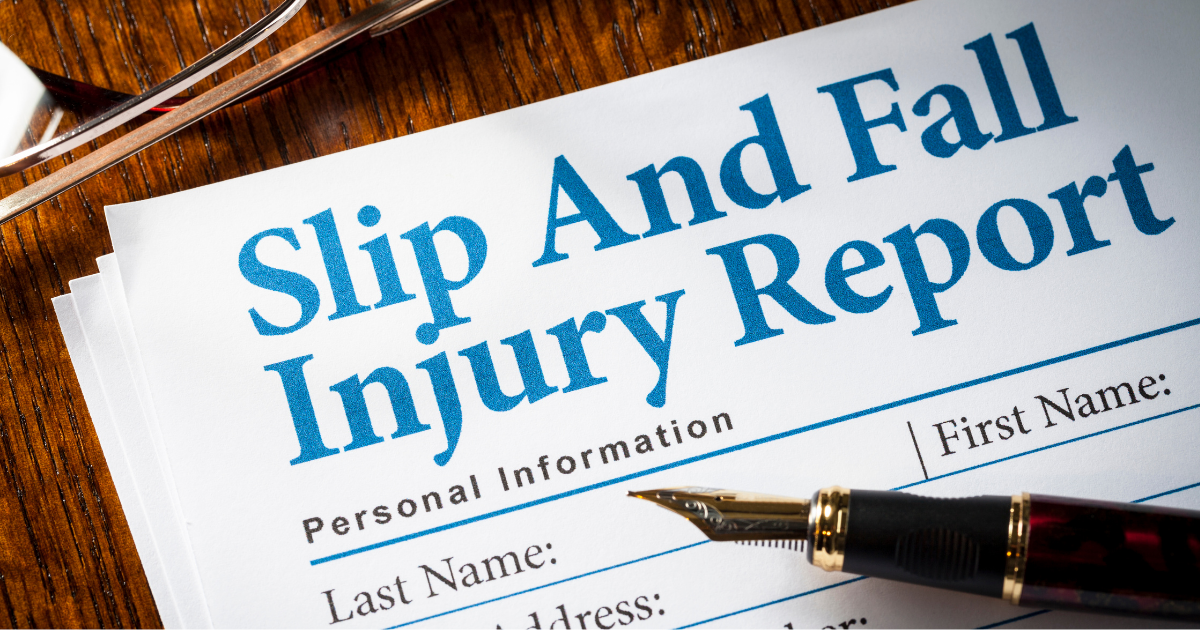The premises liability laws in virtually all states says that the people who own and occupy a commercial or private property must maintain reasonably safe conditions. If a potentially dangerous condition exists, such as a puddle caused by a spill on the floor, the people in control of that property must take reasonable steps to correct the situation.
Reasonable steps include placing a caution sign next to the problem area to warn others of its existence while one or more people obtain the items needed to fix the situation. Unfortunately, many stores and other places of business ignore dangerous conditions. That could cause you to suffer an injury from a slip and fall accident.
For example, if you are in the beer aisle of store looking to gather more supplies and slip, trip, or fall and suffer an injury, you might have a valid claim for premises liability. But if you are drunk when it happens, your condition might negate the liability. That is especially true if a caution sign was in plain view and you ignored it because of bad judgment caused by inebriation.
Proving Slip and Fall Liability
A successful complaint for premises liability from to a slip and fall accident requires you to show that the people controlling the property had a duty of care to provide a relatively safe premises. You must show that a dangerous condition existed, and that people in charge of the property should have known about the condition but did not take reasonable steps for correct it.
You also have to show that the condition caused you to suffer a slip and fall that caused an injury. You would need to show damages, such as medical costs and time away from work due to the injury. Without provable damages, there is no case, even if you did slip and fall because of the negligence of a property owner or occupier.
If you can prove the basic elements of premises liability, you might have a strong legal claim. However, if you were drunk and visibly so, the property owners or occupiers could argue that your intoxication caused the injury. If you were drunk and they have witness statements and video affirming it, your case might get dismissed.
Comparative Liability Could Apply
If you are even partly at fault for causing a slip and fall accident and injury to yourself, you could see a potential personal injury settlement reduced by about the same level of your liability. New Jersey’s Comparative Negligence Act holds accident victims at least partly liable when they significantly contribute to causing the injurious incident.
For example, the premises owner or those in charge of maintaining it could take reasonable steps to correct a potentially dangerous condition by marking it with a highly visible Caution sign. Usually, a large yellow cone or similar object with the word Caution emblazoned on it in large red letters is highly visible and a clear warning to avoid a dangerous condition.
If you are drunk and disregard such a sign and wind up falling as a result, the premises owner could argue that you caused that accident. If there is no sign and a minor issue caused you to trip and fall, the premises owner could argue that you are at least partly responsible, owing to being drunk.
Potential Settlement Reduction for Drunkenness
In such instances, an insurance adjuster and possibly a court could determine the percentage of your fault and deduct that from any settlement amount because of comparative liability. If you are deemed to be 10 percent at fault for causing an injury accident, your settlement would be decreased by 10 percent.
If you are equally responsible for causing your accident and injuries, your settlement would be cut in half. However, if you are found to be more than 50 percent liable for the accident, then you would not receive anything. People who are more than 50 percent at fault for causing injury accidents cannot obtain a settlement.
When you are drunk, it is relatively easy for a property owner, an insurer, or an opposing lawyer to argue you are more than 50 percent at fault for causing an accident. That does not mean your case is lost. But it does mean you need the assistance of an experienced personal injury lawyer to present the best possible case.
Insurance Adjuster Might Deny Your Claim
If you slip and fall while visiting a store or other property and are visibly intoxicated, the insurer for that property might deny your claim. Whenever a store or other place of business has a customer suffer an injury from a slip and fall accident, a commercial insurance policy covers the liability.
The store owner or management would have to file a claim with that insurer, and the insurer would assign an insurance adjuster to investigate the claim. If you are visibly intoxicated and store personnel or other witnesses say you were drunk and caused the fall because of your condition, the insurer most likely would deny that claim.
When an insurance adjuster denies a claim or if it does not go that far and the store or other entity refuses to admit fault, you would need to retain an experienced personal injury lawyer. Slip and fall cases do not always have clear fault, and public drunkenness could weaken an otherwise strong case.
Mount Laurel Slip and Fall Lawyers at the Law Office of David S. Rochman Help to Hold Liable Parties Accountable
Although you certainly can file legitimate claims for damages from a slip and fall accident if you were drunk when it happened, legal help likely is needed. The experienced Mount Laurel slip and fall lawyers at the Law Office of David S. Rochman can help you to hold the liable party accountable for injuries and damages. Call us at 856-751-2345 or contact us online today to schedule a free consultation. Located in Mount Laurel, New Jersey, we serve clients throughout Burlington County and surrounding areas.


